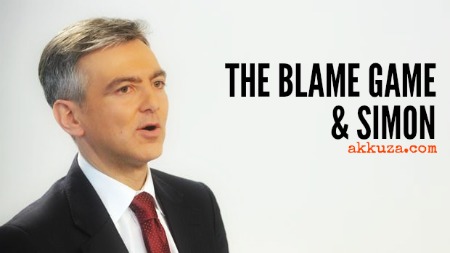 Opposition leader Busuttil was lambasted from some quarters for having dared suggest that the whole Enemalta procurement scandal was actually abused of as electoral fodder by Muscat and his men. What Busuttil suggested was really not too hard to understand – if the information was available long before the election loomed ominously, why was it withheld until a time when it would pay Labour in opposition as an extra baton to imply government corruption?
Opposition leader Busuttil was lambasted from some quarters for having dared suggest that the whole Enemalta procurement scandal was actually abused of as electoral fodder by Muscat and his men. What Busuttil suggested was really not too hard to understand – if the information was available long before the election loomed ominously, why was it withheld until a time when it would pay Labour in opposition as an extra baton to imply government corruption?
Busuttil was not implying that the information should have been kept quiet until after the election (who would think such a thing anyway?) but rather that it should have surfaced when it was discovered and not much later. While the PAC continues on its fishing expedition trying to pin the whole scandal onto Lawrence Gonzi Busuttil’s kind of assertion will fall on deaf ears or attract the playground type of response that the Labour machine has been honed to give.
The HSBC Swissleaks now adds to the intrigue of the Farrugia Brothers discoveries in that it provides an easier target with the cliches straight out of conspiracy theory books – which is not to say that there is nothing underhand going on in the world of procurement, government permits and the like. The problem lies elsewhere. In Malta there is no such thing as investigation beyond politically motivated with-hunts. The politically motivated is also limited in its extent since oftentimes the investigators have a huge interest in making sure that they do not in turn become investigated.
We just have to look at what happened in Italy in the early nineties to understand what I am getting at. Our political parties have developed a system of self-preservation that became ever more evident during the last election. Rules and laws of the overall system have gradually been adapted to ensure the survival of the two political parties – not just politically but also financially. Hidden behind these rules is a system of favoritisms and expectations that link the political aspect to the economy in general on the one hand (from employment to contracts to tenders to permits) and to the social on the other (medical rights, entertainment “elites” and circles).
It would not just be limited to the parties. Institutional flaws would also surface – authorities controlling pieces of the market suddenly hold strong cards for bargaining: which is where I suspect the whole Enemalta picture fits in. From the most expensive multi-million euro tender to the smallest warden with fine giving powers there is an alternate currency of favoritism and favour. Of course if you are the party in government you and your men have a stronger bargaining power. Everybody gets their unjust desserts.
Mani pulite in Italy uncovered a clear system where bungs were paid to the pentapartito (five main parties from DC to PC) whenever anybody anywhere wanted to merely conduct business. No bung (tangente), no party (tender). Does this happen in Malta? The evidence seems to be pointing to it having happened on a regular basis – not necessarily with the blessing of politicians – and that it can still be occurring to this day.
Labour seems hell-bent on institutionalizing the system further. There is no longer a need to hide the “debts” owed to supporting lobbies. It is translated immediately to enabling laws or worse still – as the forthcoming threat of an amnesty for all MEPA violations shows – an actual conspiracy to render the illegal legal. Illegal constructions will enjoy a bonifico of huge proportions and consequences – all so as to appease the debts that got Labour into power. The network between social and business interests intertwining with government is becoming more and more dangerous. We do not have a pool of inquiring magistrates as the Italians did and in some way we can consider that a blessing of sorts given how some people here tend to interpret the laws.
Simon Busuttil was right though in turning up the heat on Muscat. The whole Enemalta investigation is misguided if it turns into a fishing expedition on Lawrence Gonzi. If, rather than speculating in the style of our tabloids, proper questions were asked as to how our whole system is beginning to stink of favoritism, cronyism and party-instigated corruption then, maybe, we could be getting somewhere.








